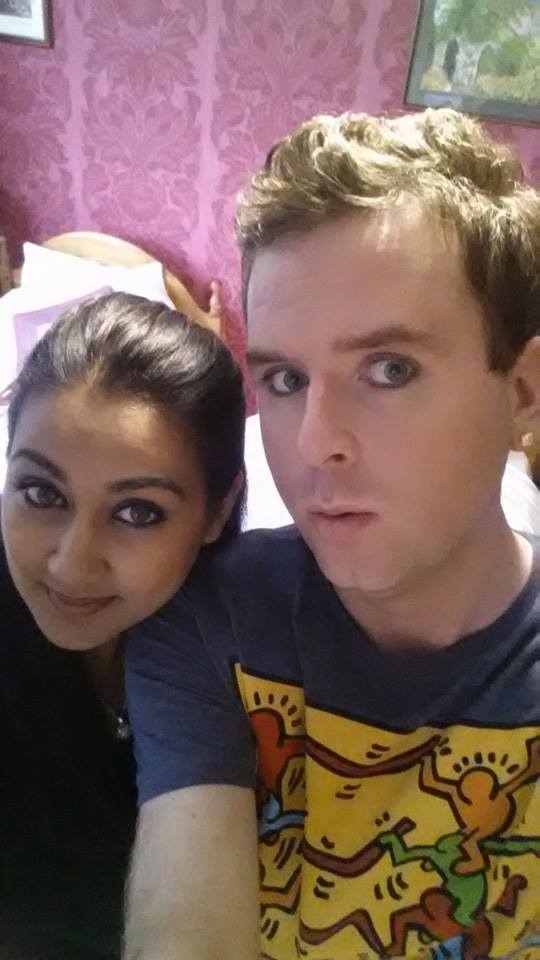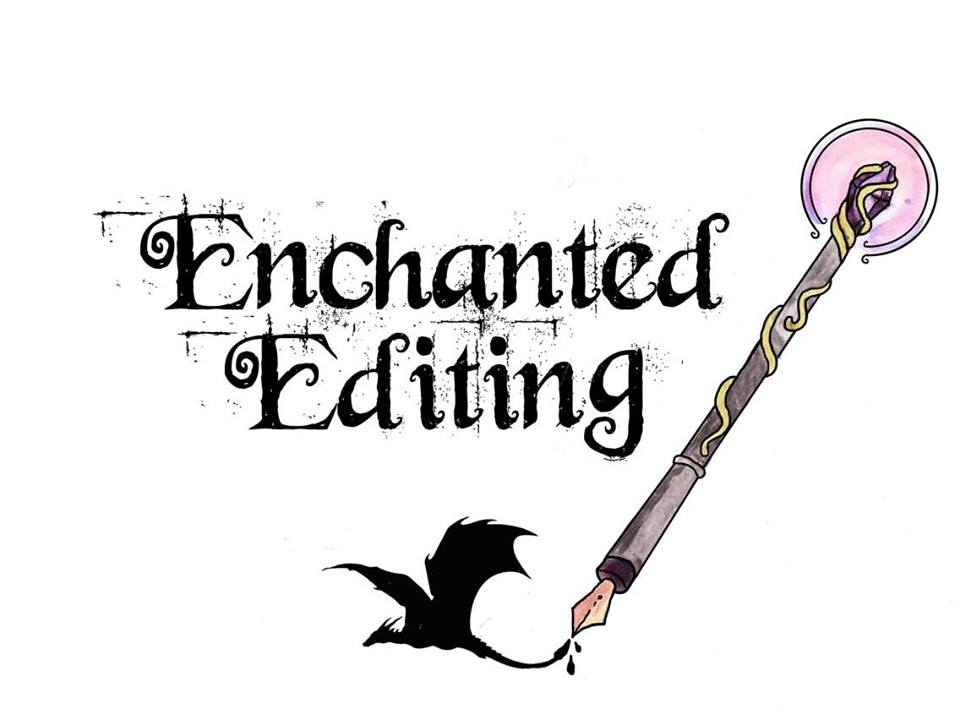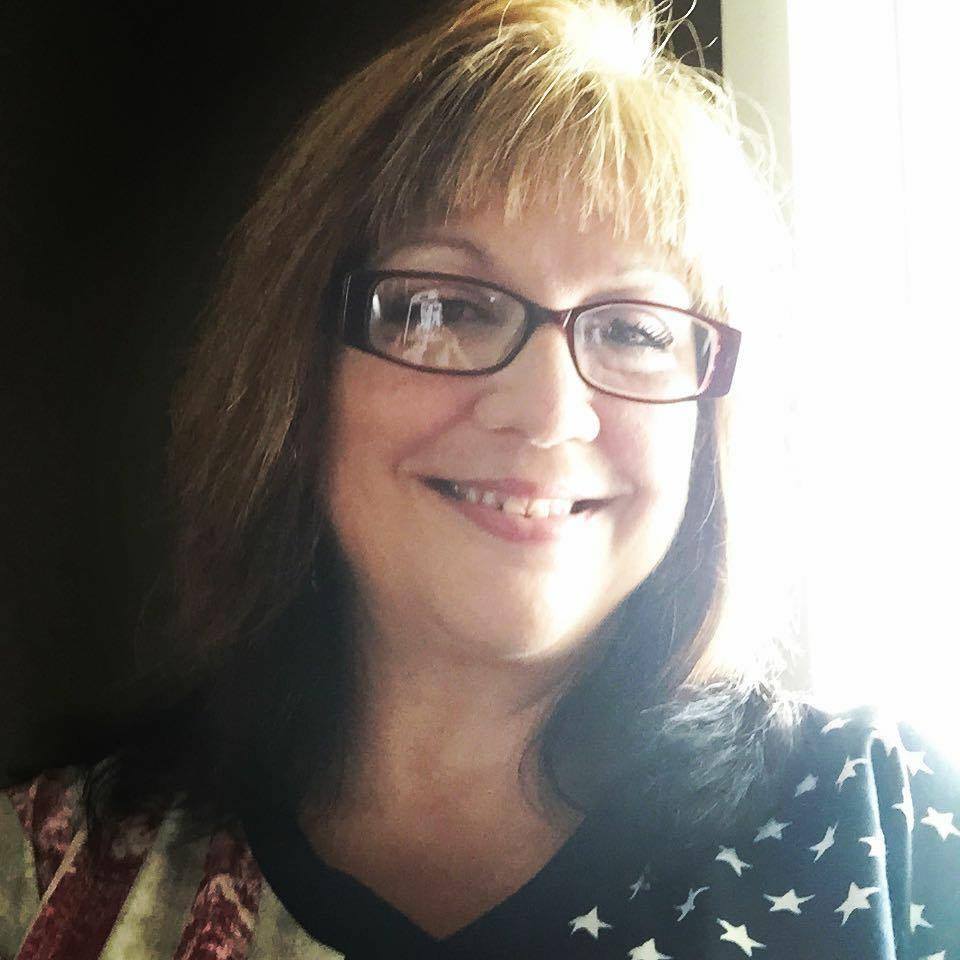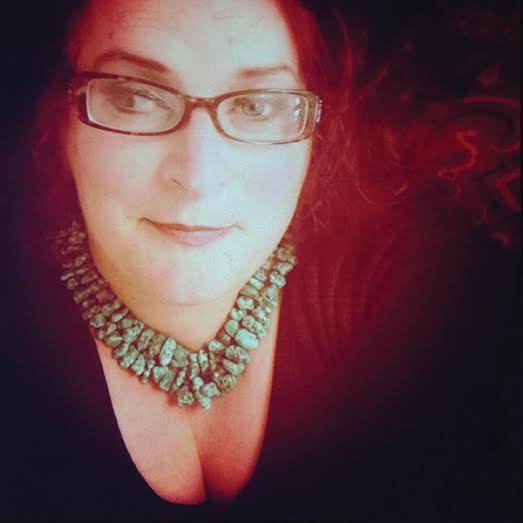Hello, Folks!
Hope you’re all good. Well, after a week of gorgeous weather here in the UK, the rain is now back to do its thing. Oh, well. But never mind the weather…
Today we welcome Mark Coker, founder of Smashwords, to the blog. Mark has kindly popped over here to answer some questions from us and from other indie authors. So grab a coffee, or a tea, or even a beer if you fancy one, and join us for this interview…
Over to you, Mark…
One of the questions many authors planning on going wide are asking is ‘Smashwords or another aggregator? What would you say to those authors? What sets Smashwords apart from the dozens of other aggregators?
There are several competent distributors out there, and I would hope that if an author doesn’t work with us they work with another. Distributors such as Smashwords provide authors a lot of advantages they can’t get simply by uploading direct to each retailer. The primary advantages are time-savings, simplicity and control. We allow authors to reach multiple global retailers with a single upload, and then we provide centralized control via the Smashwords Dashboard that helps expedite price updates, metatadata changes and sales reporting. And, of course, we help authors reach retailers and libraries than can’t be reached without a distributor.
Although authors have many choices, some of which charge fees and others of which are free such as Smahwords, I think authors who work with us will enjoy more tools and broader reach. With tools and broader reach come more sales opportunities. And authors who are chose to work with any distributor should also still work with us because we’ll enhance their reach.
I’m happy to share a few features and benefits of Smashwords, several of which are unique to Smashwords when comparing us against the many different distribution options out there.
- We’re the original ebook publishing platform for indie authors, and the world’s largest distributor of self-published ebooks. We’re currently publishing over 375,000 books from over 100,000 indie authors and small independent presses. We were among the first to open up mainstream retailers to indie ebooks, and we’ve negotiated great terms for our authors across our distribution partners. We’re constantly innovating new tools designed to give our authors advantages in the marketplace.
- We make ebook publishing incredibly quick and easy. Authors can upload a Word .doc or a professionally designed epub. Our Smashwords Style Guide teaches authors how to create professionally formatted and styled ebooks using a word processor.
- Rapid distribution to retailers. For most of our retailers, we’re delivering new titles and metadata updates around the clock. It’s not unusual for an author to upload a new book or a preorder and see that book appear at iBooks a couple hours later (or sooner). All of our author retailers have also significantly improved the speed of their listings. Most of our delivering are processed and up at our retailers within a couple business days.
- Broadest distribution network across retailers and libraries, including iBooks, Barnes & Noble, Kobo, OverDrive (serves over 20,000 public libraries), Baker & Taylor Axis 360 (serves hundreds of libraries), Inktera (formerly PageFoundry, powers about a dozen small ebook app stores), Oyster and Scribd. We even distribute a small number of titles to Amazon for a small subset of our better selling authors who request it. More retailers and library partners are on the way.
- We operate our own store atwww.smashwords.com offering exclusive sales and merchandising tools. For readers, a single purchase at the Smashwords Store enables them to enjoy your book in multiple formats, assuming the author uploaded their manuscript as a Word .doc which is what most authors do. For authors, even if an author is using another distributor, they should still list their book in our store. Some of the exclusive tools we offer include Smashwords Coupons (custom coupon codes for percentage-off, dollars/cents off, and free copies for fans and reviewers), free author pages, Smashwords Interviews (self-serve interviews –https://www.smashwords.com/interviews), enhanced series discovery with custom series pages, customizable widgets for off-site marketing and more. Our store pays the highest royalty rates, up to 80% list depending on the price of the book or the size of the customer’s shopping cart (Books at $.99 often earn 80% list if they’re in a shopping cart with a checkout total over about $8.00).
- Preorders – we do regular preorders and “assetless” (meta-only preorders). We and our authors pioneered many of the best practices associated with ebook preorders, and we share these tips and tricks with our authors. Learn more athttp://blog.smashwords.com/2015/06/smashwords-introduces-assetless.htmlandhttp://smashwords.com/preorder where you’ll find links to several strategy articles
- We provide the industry’s best indie author training materials, and all these resources are free. Our mission is to help teach indie authors how publish with pride, professionalism and success, and these resources are useful to every author even if they don’t utilize our services. My three ebooks on ebook publishing best practices have been downloaded almost 750,000 times –The Smashwords Style Guide (how to format and publish an ebook), The Smashwords Book Marketing Guide (how to market any book for free) and The Secrets to Ebook Publishing Success (over 30 best practices of the bestselling indie ebook authors). Also check out my training videos athttp://youtube.com/user/smashwords or my recently uploaded 6-hour presentation deck at http://blog.smashwords.com/2015/07/how-to-publish-ebooks-ebook-publishing.html
- Our Daily Sales report provides attractive same-day and next day aggregated sales charts from iBooks, Kobo, Barnes & Noble, OverDrive and the Smashwords Store. Provides instant feedback on how books are performing across multiple retailers, with tools to drill down by books, channels and more. Charts go back 180 days. Learn more athttp://blog.smashwords.com/2014/06/smashwords-adds-daily-sales-reporting.html . We of course also provide complete historical sales data than can be viewed online or downloaded as a spreadsheet.
- Learn more athttps://www.smashwords.com/about/how_to_publish_on_smashwords
Selling on platforms such as iBooks and Nook through Smashwords can limit merchandising opportunities, is that true? If so, is there a way around it? Can Smashwords help authors snag those merchandising opportunities with iBooks and Nook?
Definitely not true. Thousands of our authors have achieved special merchandising and promotion opportunities by distributing with Smashwords. In fact, I’d argue that Smashwords authors gain tremendous merchandising advantage by distributing with Smashwords. Each week we’re in direct communication with the merchandising teams at all three retailers, highlighting for them our best performing and most promising titles. The retailers know our recommendations are based on merit, and merit is based on the author’s actual sales performance across the Smashwords distribution network. If the author isn’t distributing with us, we can’t count their sales and can’t recommend them for merchandising. In the interest of full disclosure, authors should understand that we can’t promise merchandising love. But we will coach our authors on how to maximize their chances. The retailers make the final decisions. But they do know that our recommendations are based on actual sales results.
We hear you have recently launched something called Assetless pre-orders. I’m not sure that many authors are aware of this feature, or whether other aggregators are offering it yet. Can you tell us a little about Assetless pre-orders and how they can benefit an author?
We’ve been distributing ebook preorders for nearly three years. We’ve assembled strong data proving without a doubt that books born as preorders sell more copies than books that are simply uploaded the day of release.
An ebook preorder makes it possible for an author to start capturing orders weeks or months in advance of the book’s onsale date. For example, many authors are on Facebook or Twitter, telling their fans about the next book they’re writing, and generating demand for that book. A preorder allows the author to capture the reader’s order at the moment they have the reader’s greatest attention and interest. Preorders can also improve the book’s chancing of hitting both retailer and national bestseller lists. Up until recently, we required authors to upload a completed manuscript to establish a preorder listing. The downside of this restriction was that it meant authors were unable to get their preorders up until just a few days or weeks before their release date.
In June 2015 we announced support for assetless preorders, also known as “metadata-only” preorders. An assetless preorder allows the author to establish their preorder listing up to 12 months in advance, even if they haven’t started writing the book yet. No manuscript or cover image is required (this can be added later). This longer preorder runway allows authors to better exploit the full benefits of a preorder.
Preorders are probably the single most important new book marketing tool to come along for indies in the last five years. Most indies don’t yet know how to leverage preorders (they can check out my preorder strategy posts to learn how!), which means that the indies who do release with preorders have a significant sales and discovery advantage.
You can learn more about this incredible new tool in the announcement at our blog post titled,Smashwords Introduces Assetless (“metadata only”) Preorders.
Any tips on getting those sales up on the actual Smashwords site? Are there any paid promotion sites that focus particularly on Smashwords as a vendor? If not, do you think we can set something up?
The Smashwords Store doesn’t provide any paid advertising opportunities. The merchandising on the store is completely automated, and it’s designed to leverage our knowledge of what readers are buying, what they’re considering buying as well as the contextual relationships between what they’re looking at and what they and others have purchased.
To take full advantage of what our store has to offer, here are some quick tips:
Upload your manuscript as a Word .doc file, because this allows us to convert your book into multiple ebook formats so you book is readable by readers on any device. We convert to epub, mobi, PDF, plain text and others.
On your blog and in social media, promote direct hyperlinks to your book pages at Smashwords. If you simply say “find my book on Smashwords,” there’s a good chance the reader will get distracted by all the other great books. A direct hyperlink puts the reader one click away from adding your book to their shopping cart. At the Smashwords store you’ll earn the industry’s highest royalty rates (up to 80% list), so definitely make sure you’ve got links to your books on your blog, website and in social media. If enough customers purchase your book, your book will get caught up in our automated merchandising systems where you can appear on our store-wide bestsellers lists, genre bestsellers lists, and even bestseller lists by filtered by genre and word count! Your book can also start appearing in our new “Also
recommended” merchandising which appears on each book page. It’s like “Also boughts,” but with additional intelligence that goes far beyond just purchase data.
Write a compelling description. A lot of authors make the mistake of not providing a compelling description. “This is my fourth book of poetry,” for example, is a horrible description yet we see that a lot!
Don’t skimp on the cover image. Readers judge books by the cover. A great cover makes an aspirational promise to the target reader. Most home made cover images look just like that – home made. Rather than creating your own ebook cover image, hire a professional. There are hundreds of high-quality cover designers who will create covers for under $300. Carefully study their online porfolios before you select an artist. We also have a list of low-cost cover designers and formatters you can use athttp://smashwords.com/list These freelancers work for you, not us, and we don’t take a commission if you hire them (this helps them keep their costs to lower).
Take advantage of our new Smashwords widgets. Below the shopping cart on every Smashwords book page you’ll find a link to create a widget. You and your fans can use this tool to create attractive widgets that will dynamically update over time when you change your price or book details. Encourage your fans to install these widgets on their blogs and web sites! Here’s an example of the Widget page for my free ebook, The Secrets to Ebook Publishing Success.
Create a Smashwords Interview. This is a fun self-interviewing tool that allows you to publish an interview of yourself directly onto your Smashwords author profile page. We’ll present you with a series of questions, and you have the ability to modify the questions or create your own questions. It’s a great chance for you to let your readers learn the story behind the author. Here’s a link to my Smashwords interview: https://www.smashwords.com/interview/mc
Create a compelling author profile page. The author profile page allows you to upload a headshot, publish your bio, and provide direct hyperlinks to your social media pages at Facebook, Twitter, Wattpad, your blog and your website. You can even add a link to your Amazon author page where readers can purchase your print books (assuming you have print books up at Amazon). Here’s a link to my profile page: https://www.smashwords.com/profile/view/mc
If you write series, connect your series books with our cool Series Manager tool. Series Manager increases the discoverability of your series books at Smashwords (and at our retailers too!). You can even upload a custom image to represent your series, along with a special series description. Also if you write series, be sure to price your series starter at FREE. We’ve found that series with free series starters earn more sales than series without free series starters. Here’s a sample link to the series page for my Smashwords Guides: https://www.smashwords.com/books/byseries/1
Watch my YouTube videos at http://youtube.com/user where you’ll find best practices information for all skill levels from novice to expert.
Last but not least, write a super-awesome book! This should go without saying but it needs to be said: There’s a glut of low-cost high-quality books out there. Most of the major retailers are offering over 2 million ebooks. In the Smashwords Store, we have nearly 400,000 books (not as bad as 2 million, but still a lot of books!). Books sell based on word of mouth, and word of mouth is manifested via online reviews, recommendations over social media, and in actual real-world recommendations you might make to friends and family. To turn a reader into an evangelist, your book needs to take them to an emotionally satisfying extreme. You need to make the reader go, “WOW!” As every writer can appreciate, it’s not easy to write a WOW book. Encourage your Smashwords Store customers to leave you an honest review in our store. If you want them to leave a review but they purchased the book elsewhere, offer them a free Smashwords Coupon code because once they redeem the code, they can leave a review.
Questions from other indie authors:
I have four eBooks on Smashwords, none of which sell, even though the same eBooks are selling on Amazon. My books have been on Smashwords for over two years. My promotions always result in sales from Amazon, but never Smashwords. Is it my fault?
It’s not your fault, even assuming you’re providing direct links to your books at Smashwords. Keep in mind that Amazon is the world’s largest ebook retailer and the Smashwords Store is a much much smaller store. Consider the sales you get at Smashwords as icing on your cake. Your sales at our larger retailers –iBooks, Barnes & Noble and Kobo, for example – will almost always be higher than what you earn in our store. That said, from time to time I’ll hear about authors who sell more at Smashwords than at other stores. I think that’s more of a rare exception than a rule, but possibly these authors are promoting their titles at the Smashwords store more aggressively, or they’ve been with us enough years to develop a large and loyal following.
Do you have any tips on getting iBooks features?
Yes. First, remember their decisions are merit based. They’re looking for titles that have either already been endorsed by their customers (as measured by sales, ratings and reviews) or endorsed by readers elsewhere (as measured by your aggregates Smashwords sales across our retailer network). I created a video about 18 months ago that talks about iBooks merchandising tips. The tips I share there are also applicable to the merchandising decisions of most other retailers. Merit merit merit. View the video athttp://www.youtube.com/user/Smashwords You’ll also find a more updated and downloadable presentation on iBooks merchandising strategies here in my post, How to Publish Ebooks – An Ebook Publishing Intensive.
Will you distribute to German online-shops any time soon (or any other international online shop)?
Yes, you will see us do more in internationally in the months ahead.
I’m super-disappointed about the loss of FlipKart in India as it’s a mega emerging English-speaking market. I realize you pulled the plug on FlipKart because they were slow to get books in and out and do price changes for authors who like to flit in and out of Kindle Unlimited like the wind, but what about writers like ME who’ve gone wide since the beginning? Why are we being penalized for the actions of a flaky few?
I’m disappointed too. I wrote a lengthy blog post about the issue athttp://blog.smashwords.com/2015/08/smashwords-and-flipkart-to-end.html and there was also a great discussion in the comments. We didn’t pull the plug on FlipKart, though it is true we threatened to do so if they didn’t improve their ability to honor the copyrights and takedown wishes of our authors. We couldn’t allow the situation to persist because too many author were being punished by Amazon. I completely agree it totally sucks that all our authors got thrown out with the bath water, but as it worked out, FlipKart decided to exit the ebook business according to recent media reports. I can only speculate, but my guess is that the likelihood of eventual lawsuits from indie authors probably helped them decide it’s not a game worth playing for them.
Flipkart continued. And ditto for a lot of the other smaller distributors who can’t shift with the wind, but might net us all a few local sales. I’d just begun experimenting with an advertising campaign in India of direct-downloads-for-email with great effect when you pulled the plug on one of my primary non-Amazon distributors. I still have GooglePlay and Pothi, but nobody ever BUYS ebooks on Pothi (sadly), just downloads the free ones. The worst thing is, I’ve gathered some raving fans from these experiments; people hungry for new books and eager to tell their friends. Couldn’t Smashwords create a special opt-in category for these lesser distributors with a big fat warning like ‘warning, B-tier distributors only update their data monthly’ or something? I mean, you say that authors who cater to d’zon are killing all these tiny g-local contenders in their cradle, but then didn’t you just feed the machine by being inflexible? I mean, if you can do that for some of the obscure library-lending programs, why not for tiny g-local distributors?
If a retailer is unable to respect our authors’ rights, we’re unwilling to work with them. Our authors trust us to work with quality, capable retailers so we tend to say no to more retailers than we say yes to. Every major retailer has, at times, struggled with the enormous scale of our catalogue. We’re publishing nearly 400,000 titles, and these titles are constantly changing with new pricing, updated descriptions, updated books, takedowns, republishings and more. We’ve build incredibly robust and reliable distribution systems to bring order to this chaos, but we rely on our retailer partners to build robust systems on their end. FlipKart decided they weren’t able to keep up.
In the age of Amazon and its predatory practices which place indies in the crosshairs if a small retailer like FlipKart can’t keep up, it’s all the more reason we owe it to our authors to carefully choose our partners. In the case of Amazon they were threatening to disrupt the worldwide sales of these authors simply because a small little retailer – one that probably hadn’t ever sold a copy of the book – was having difficulty removing the book quickly from their shelves.
The good news is that we’ll continue to add retail partners that are capable and that will continue to expand the reach and availability of our books.
Authors who want to directly support our continued efforts to open up new worldwide markets can help by distributing their books with Smashwords, and by opting in to all our distribution channels. We work for our authors and appreciate your support!
MARK COKER BIO:
Mark Coker founded Smashwords in 2008 to make it fast, free and easy for writers to self-publish an ebook. Today, Smashwords has grown to become the world’s largest distributor of self-published ebooks. 100,000 authors and small independent presses around the world publish and distribute nearly 400,000 books with Smashwords. Smashwords provides authors and publishers a robust suite of professional publishing tools that improve the discoverability and sales of their titles. Smashwords distributes globally to Apple iBooks, Barnes & Noble, OverDrive, Kobo, Scribd, Oyster, Baker & Taylor Axis 360 and others. Follow Mark on Twitter@markcoker. Mark blogs at http://blog.smashwords.com
Thanks for stopping by, Mark!
Amos Cassidy Bio:
Amos Cassidy is the pen name for Richard Amos and Debbie Cassidy. Amos is a 31 year old Diva and Cassidy a 39 year old mother of three; well, four if you include the husband. A common love of all things Joss Whedon, Urban Fantasy, and a tug of war over Jensen Ackles, brought them together, and one cold February afternoon, over nibbles and coffee, their partnership was born.
You can find Cassidy hard at work in her fortress of solitude which has eaten up the majority of her garden, and Amos…well he’s still trying to get the invisibility gizmo he got off a friendly alien in exchange for a pair of earphones to work. Funnily enough he hasn’t been seen around much lately…Frequent doses of Sugary snacks, coupled with regular injections of caffeine aid in their production of a unique brand of cross genre tales. They are always writing, but are happy to take a break to chat to their wonderful readers, so drop them a line at amoscassidy@yahoo.co.uk, or just pop over to see what they’re working on at amoscassidyauthor.com and they’ll bust out the biscuit tin.
***Website ~ Facebook ~ Newsletter ~ Twitter***







